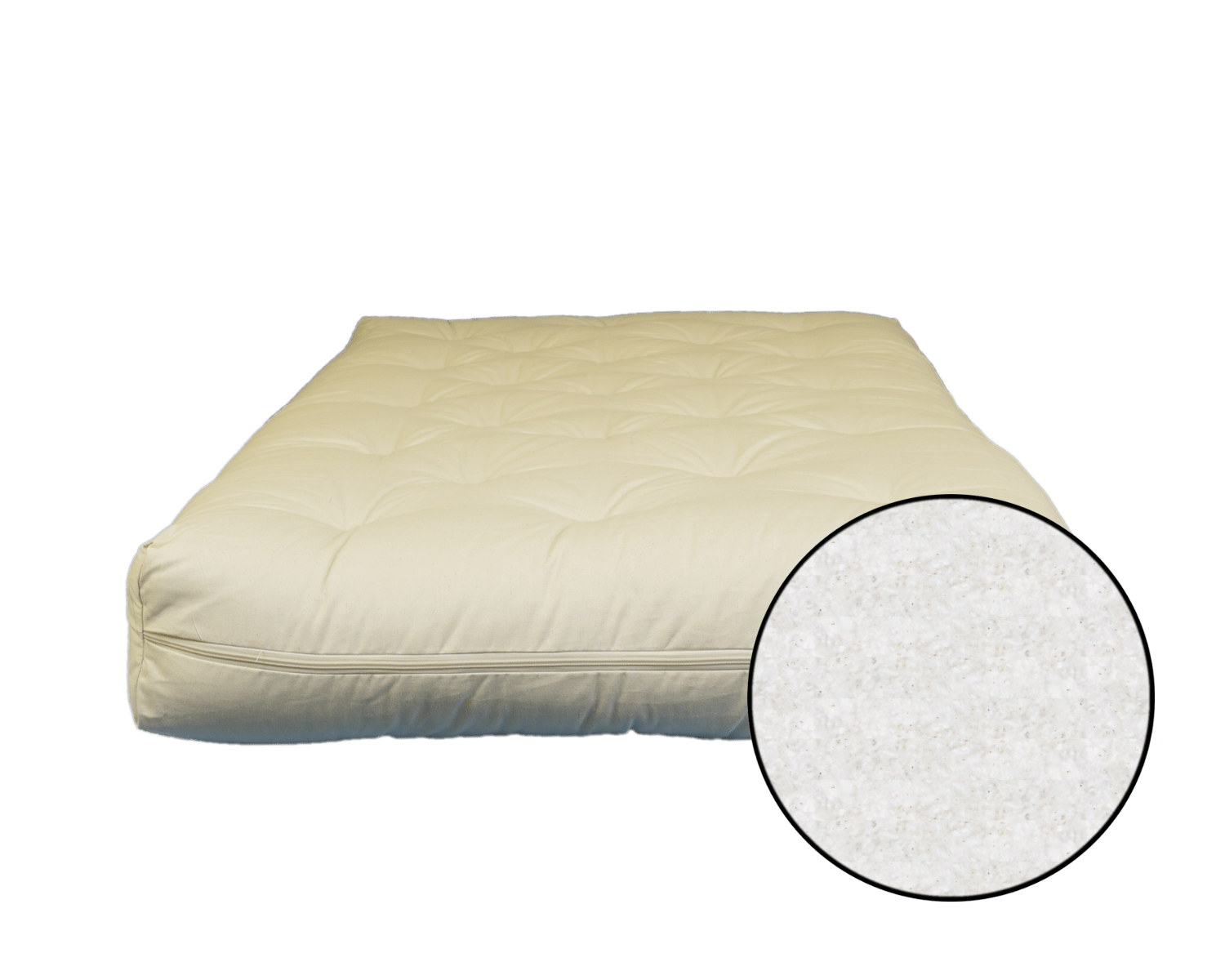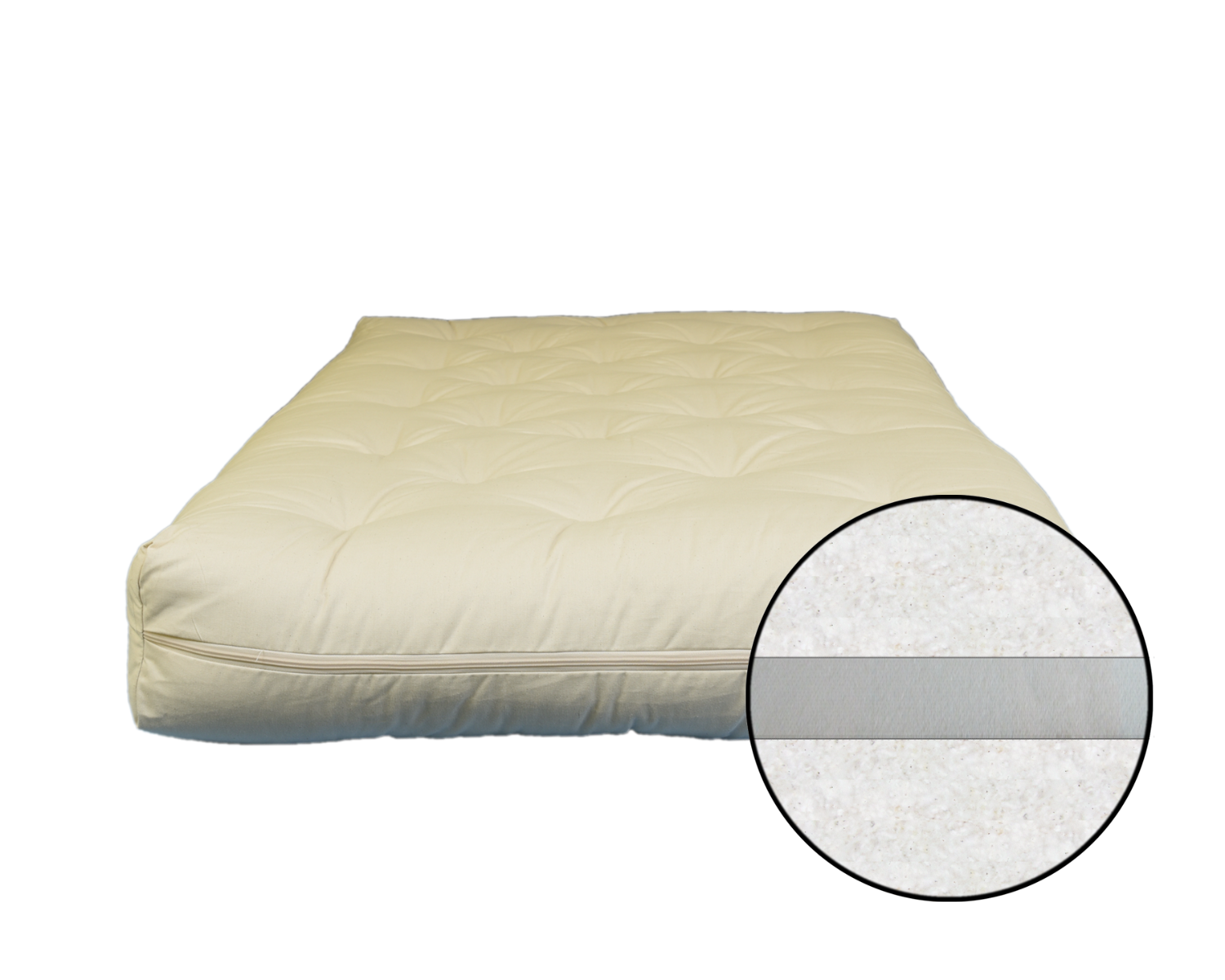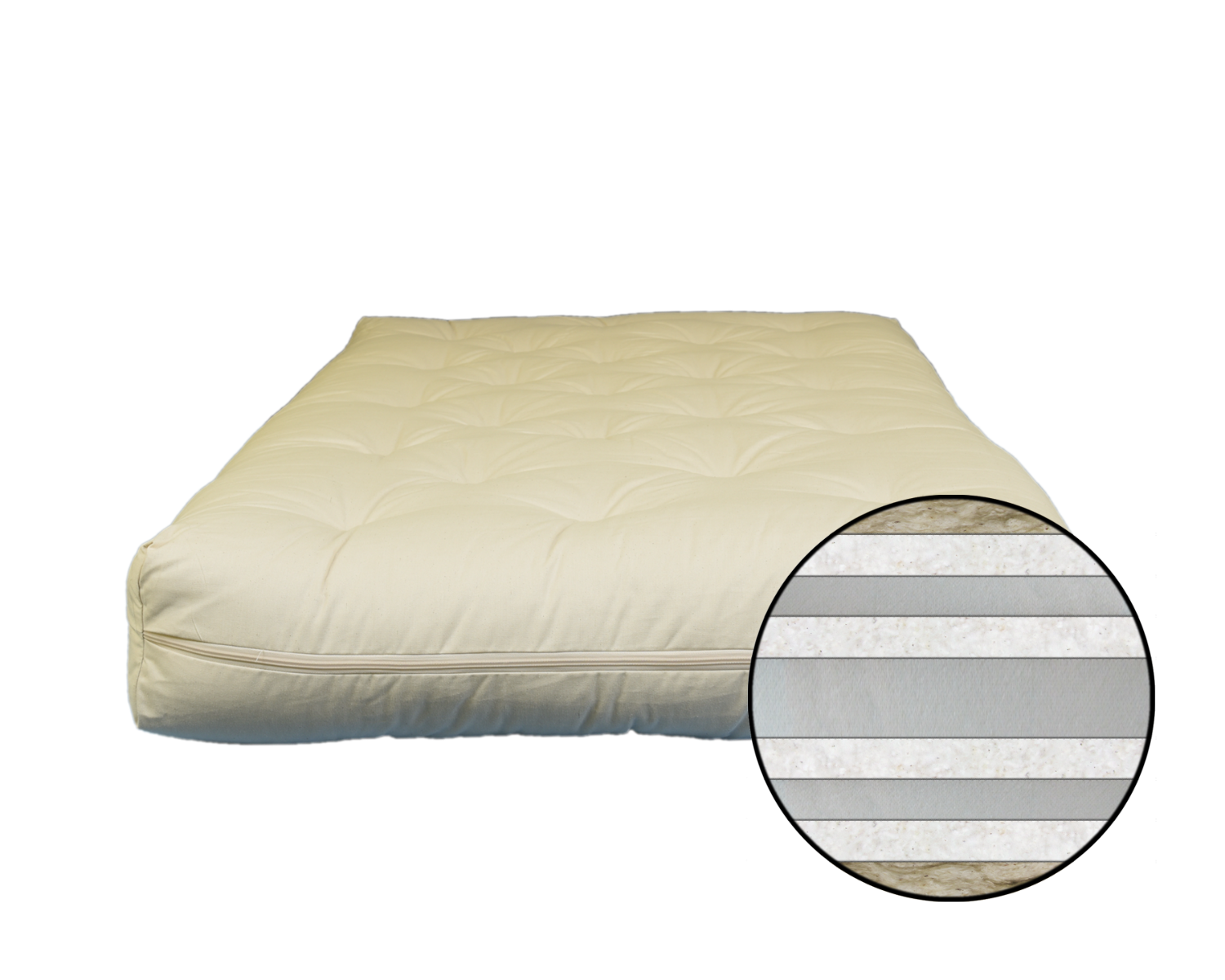What’s your primary concern when purchasing a bedding product?
For many of us, it is the comfort and durability of the product. However, in demand for luxury sleep, we should not overlook the factors that might affect our planet.
Wondering how your bedding choice can impact the planet?
It is the material of your chosen bedding that might have an adverse effect on our planet and all living creatures.
This is where organic bedding has emerged as a popular and greener alternative to conventional options, offering several benefits for both consumers and the planet.
Let’s explore more about organic bedding products, their materials, and how they are a greener choice for the planet.
What is Organic Bedding?
Organic bedding refers to products made from natural materials grown without the use of synthetic fertilizers, pesticides, or genetically modified organisms (GMOs). Typically, these materials include organic cotton, wool, and natural latex.

The cultivation process of organic bedding materials focuses on environment-friendly practices, which ensure soil fertility, biodiversity, and reduced water consumption.
Materials Used in Organic Bedding
Let’s take a look at the most common materials used in organic bedding at a glance.
Organic Cotton
The most common material used in organic bedding is cotton. However, organic cotton differs from regular cotton used in conventional bedding.
Organic cotton cultivation avoids the use of any synthetic pesticides or fertilizers. The fields used to grow organic cotton are free from chemicals for at least three years before farming, preventing soil erosion and topsoil loss.
Additionally, organic cotton production conserves water. Regular cotton farming requires a significant amount of water each year, whereas organic cotton farming utilizes much less water.
Organic Wool
Wool is a fine fiber collected from sheep and lambs. However, these creatures are often treated with steroids and antibiotics during their upbringing.
On the other hand, certified organic wool is collected from animals that are raised without antibiotics and other growth steroids. They are brought up in a stress-free environment with much more care.
Natural Latex
Natural latex is a spongy foam collected from the sap of rubber trees. It’s a well-supportive material commonly used to manufacture organic mattresses.
Like organic cotton, natural latex is collected from trees grown naturally without using chemical fertilizers and insecticides.
Why is Organic Bedding a Better Option for the Planet?
Organic bedding offers huge benefits to the planet as well as to all living creatures. Here are some reasons why purchasing organic bedding is a praiseworthy switch for our planet.
Contains Lower Chemical
Most traditional bedding contains a variety of chemicals, ranging from pesticides to synthetic dyes and other toxic substances.
Organic mattresses, pillows, sheets, and other bedding products support chemical-free practices. These products include organic cotton, wool, and natural latex grown naturally and without using synthetic chemicals.
Organic bedding promotes a cleaner and safer sleeping environment, reducing potentially harmful residues.
Reduces Carbon Emissions
Choosing organic bedding allows you to make a green choice that cuts down carbon emissions.
The materials used in organic bedding mostly rely on eco-friendly farming methods and less on fossil fuels. Additionally, most organic bedding manufacturers strive to minimize the travel distance for materials, thereby reducing pollution from transportation.
Although the mentioned factors might appear insignificant, they can make significant improvements for our planet.
Combats Unsustainable Farming
Conventional bedding often involves farming and manufacturing practices that could be unhealthy for the farmers and the environment.
Organic bedding materials support fair labor practices to produce high-quality, organic mattresses, pillows, and other bedding products.
Therefore, by choosing organic bedding, you’re not only investing in a good night’s sleep but also contributing to an eco-conscious world.
Preserves Biodiversity
Pesticides and herbicides used in non-organic cotton and latex production have a negative impact on wildlife and ecosystem.
Regular cotton farming requires insecticides more than any other crop cultivation. Sustainable organic farming helps to halt biodiversity losses and safeguard all the living creatures that share this planet.
Support Biodegradable Materials
Conventional bedding products usually contain chemicals or other synthetic materials that are non-biodegradable. It means these products fail to be decomposed, ending up in landfills and emitting noxious gasses in the environment. They emit Volatile Organic Compounds (VOCs), which are harmful to both the planet and its living creatures.
Materials used in manufacturing organic bedding products are 100% natural and biodegradable. Organic cotton and wool are easily decomposed in nature by bacteria and other microorganisms. In this way, organic bedding does not damage the environment, and when decomposed, returns to nature.
Organic Bedding for a Healthier Planet

Choosing organic bedding means embracing a production method that prioritizes sustainability and ethical practices. The absence of harmful chemicals in their material cultivation process ensures a safer and healthier sleeping environment for all.
By switching to organic bedding, you can contribute positively to the ecological balance, water preservation, improved soil and air quality, and a healthy living world.








